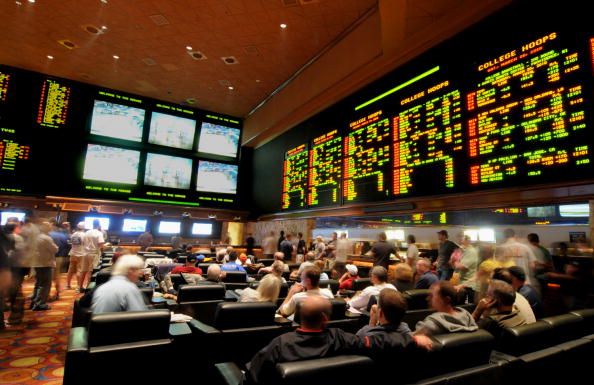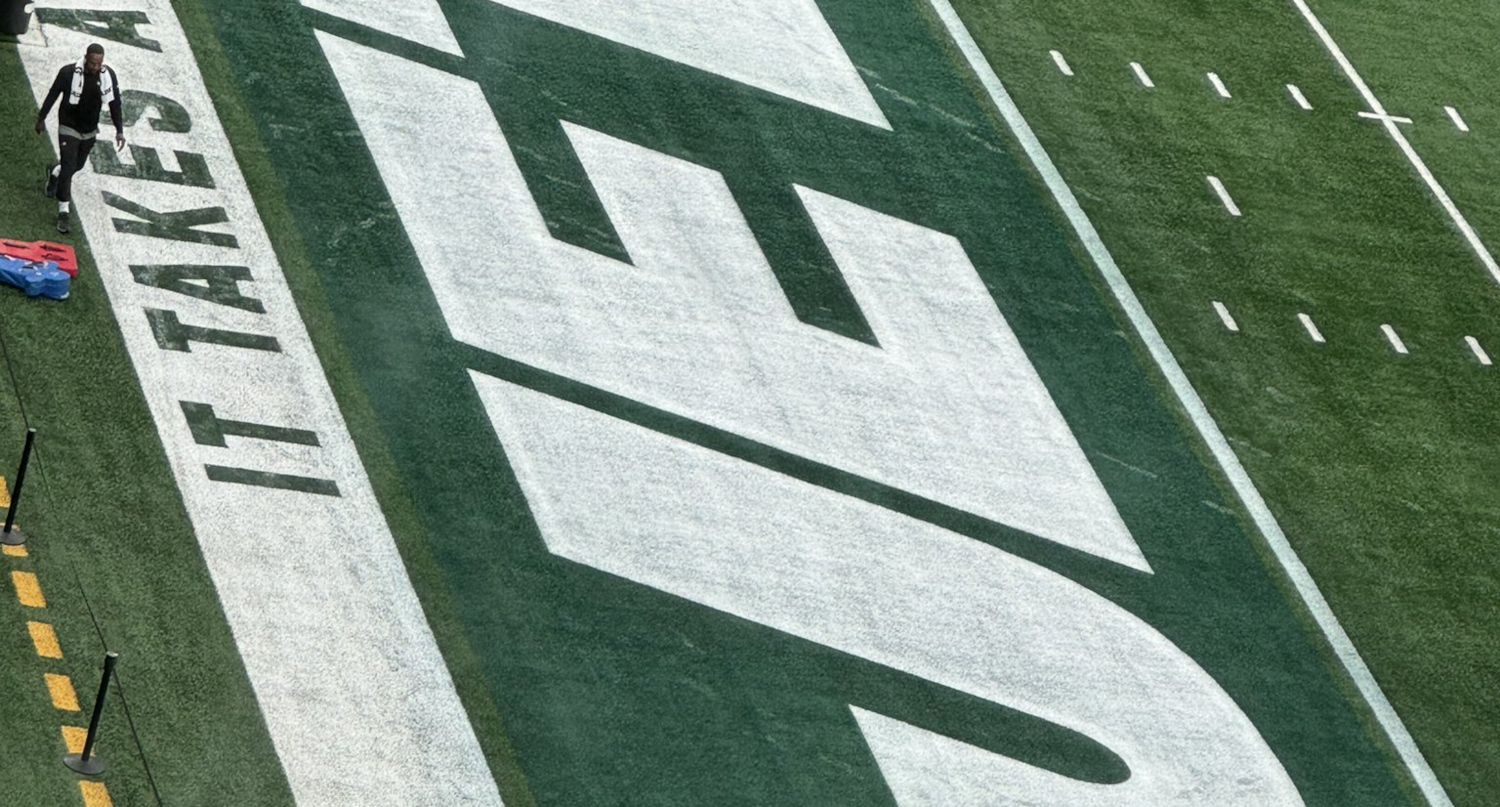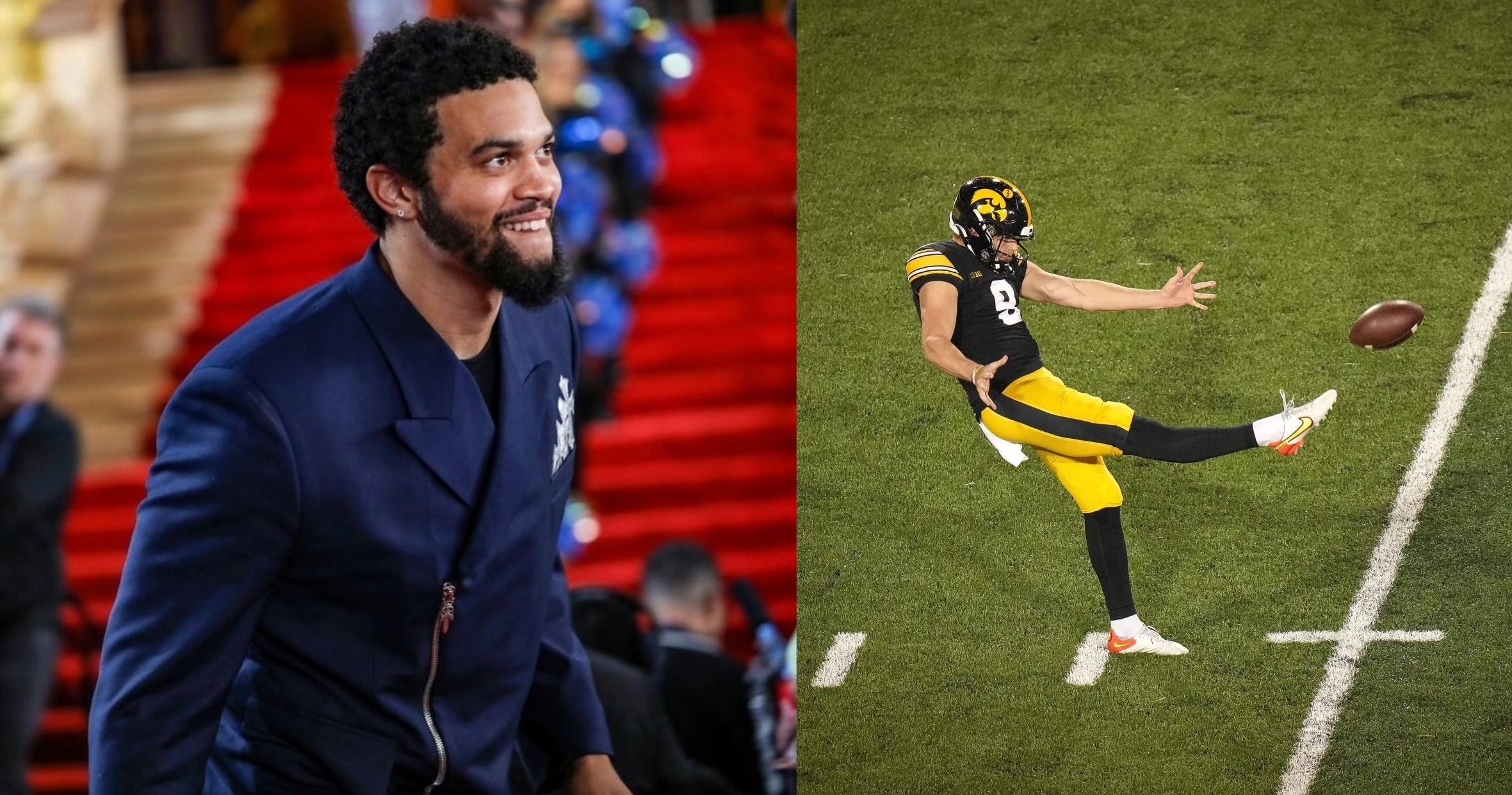Gambling on the NFL is very hard. But each week, there are a few games in which virtually everyone puts their money on one team. They think Vegas messed up the line. If 9 out of every 10 people are backing the same team to cover the spread, surely they can’t all be wrong. Right?
Wrong. It turns out listening to the masses is a sure-fire way to lose lots of money gambling on the NFL, according to detailed new research we’ve conducted.
The more convinced gamblers are about predicting a final score, the more likely they will lose the bet. On the other hand, for games when the public is unsure which team will cover, the slim majority of the public is usually right.
That doesn’t seem like it could be true – but the data show it is.
http://gty.im/475425944
I spent the last week digging through sportsbook figures from William Hill to see how often bettors can accurately predict which team covers the spread. I looked at which team had the backing of the majority of bettors’ money before kickoff, and then whether the public’s preferred team actually covered the point spread.
The overall results are about what you might expect: The team favored by a majority of gamblers won about half the time, and lost half the time. But the most fascinating part came when focusing on games in which a ton of people were all backing the same team.
I looked at the top games gamblers were most confident in: any time a team was backed by at least 79 percent of all bettors’ money (I chose that cutoff since this action made up one-fourth of all bets this season). These are the types of games when seemingly everyone, from TV talking heads to the guy next to you at the local bar, is saying they “love” a certain team cover the spread.
But the research shows those crowd-favorite bets lost 54.1 percent of the time this season – enough for a pretty significant amount of cash to flow down the drain.
You would be better off going against the grain when everyone is convinced of the outcome. Heck, you would have been better off flipping a coin before each of these games or relying on one of those animals that picks games based on eating from a certain dish.
But what about the other end of the spectrum? I looked at the games with the most uncertainty – ones where the preferred team was backed by less than 60 percent of bettors’ money.
Well, this time the public gets it right – about 56.5 percent of the time. Even when factoring in the “vig” that bookies take off winning bets, that’s a high enough win rate to make some decent dough.
In summary: when everyone is convinced a team is going to cover, the crowd is more often wrong. And when fans are split over who is likely to cover the spread, that slight majority is usually right. Here are the full results:
How the public fared against the spread this NFL season
- Public very confident in who will cover: Public won 45.9% (28-33-3)
- Typical level of public confidence: Public won 50% (58-58-6)
- Public not confident in who will cover: Public won 56.5% (39-30-1)
- very confident = at least 79% of money on one team
- not confident = 59% or less of money on one team
The difference between the top and bottom groups isn’t chump change. If someone bets $100 to back the crowd-favorite team in every one of those games the masses are very confident in, over the course of the year that bettor would end up losing a net of $755. But if that same person plopped down $100 backing the prefered teams for each game in which the crowd was uncertain, they would win a net of $545.
That’s a difference of $1,300 over the course of the season.
http://gty.im/502381014
So why is this happening? There are psychological factors at play here – studies on the bandwagon effect and groupthink, for instance, have shown we’re more likely than not to follow crowds and that it can be uncomfortable to go against a huge majority of people. But we also need to take a closer look at the individual spreads. We can do that because William Hill’s 104 Nevada sportsbooks have a savvy public relations team that sends out data on who’s backing which team before each game.
A major reason huge crowds of NFL gamblers are usually wrong is because the public so often likes to simply back the favorite, even when the spread is high. Of those aforementioned games in which an overwhelming share of bettors’ money was behind one team, only 4 of the 64 teams they picked were the underdogs in the game. It’s as if the public ignores the spread and simply piles on teams they think are likely to win.
http://gty.im/505429588
The other major explanation: the public relies too heavily on a small rotation of fan-friendly teams, such as the Packers, both New York teams and the Patriots. Most gamblers realize this, and know that the sportsbooks take advantage of this mentality by adjusting the lines a couple points here and there to make it harder for those fan-favorite teams to cover the spread. Yet the public bets them anyway because they are so often overconfident in these teams that they fail to see them objectively.
Consider that the Packers and Patriots were each backed by a majority of gambler’s money in 15 of their 16 games this season. The public backed the Cardinals in 14 games, and the Jets and Panthers in 12 games each. Those five teams combined for 27 percent of the public’s losses for those games in which a huge crowd was backing them.
But one thing that surprised me was the public’s occasional giddiness in a few teams that didn’t seem to have much business inspiring overconfidence.
The Falcons, for instance, were somehow picked by an overwhelming majority of the public four times, and went 0-4 against the spread in those games. The Lions were picked by a huge crowd of gamblers in five games, and went 2-3 against the spread. The Rams got a really big share of money behind them three times, and went 1-2. Other unlikely teams that had an outpouring of support from gamblers at one point or another included the Titans, Jaguars, Dolphins and Bears (who went a combined 0-4 when the masses were behind them).
Another factor, of course, is that casinos are tracking how much money comes in on each side, and adjust the line accordingly to encourage more people to bet the unpopular team. Still, I purposefully included only the most lopsided bets here to ensure I was only counting games in which bettors still overwhelmingly backed one side even after a move in the line.
All of this adds up to a big win for sportsbooks and a loss for most gamblers. That part probably isn’t surprising. They are in business for a reason, and the vig they take off the top of winning bets is only part of it. They are experts at setting the line at a place where they can minimize risk, and smart enough not to panic and change a line by 7 points if one team is garnering nearly all the action.
If you’re wondering how things have gone for gamblers in the playoffs so far, the sample size is obviously much smaller, but here are the results for the public based again on William Hill data:
http://gty.im/505417424
Overall: Teams backed by a majority of public money have won 3 games against the spread and lost 5
Crowd favorites: Two games featured a huge portion of money behind one team. In those, the public won after nearly everyone backed the Chiefs in their Wild Card blowout of the Texans; and the crowd lost after the Seahawks got an overwhelming amount of bets but failed to cover the spread in their opening playoff game.
Unsure games: In a reversal from the regular season, teams backed by a slim majority of bettors’ money have gone just 1-3 against the spread in the postseason. The win was the Bengals covering in the first round; the losses were the Redskins failing to cover in Wild Card round, and the Chiefs and Cardinals failing to cover in the Divisional Round.
http://gty.im/505322002
Very early returns from William Hill for the AFC and NFC championship games showed virtually everyone picking the Patriots to cover as 3-point favorites against the Broncos while a slim majority picked the Cardinals to cover as 3-point underdogs against the Panthers. But that’ll likely change as the games draw nearer.
Then, of course, comes the biggest gambling game of all. William Hill has set the Patriots as slight favorites to win the Super Bowl if they get in, while either NFC team would be a narrow favorite against the Broncos.
If this season is any indication, remember this: If virtually everyone starts talking about picking one team, you might want to think about backing the other team. When a team looks like a lock to cover to everyone betting, the public is usually wrong.








